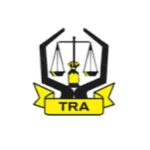TRA Tax Management Officer II: 25 Interview Questions & Answers
The Tax Management Officer II position at the Tanzania Revenue Authority (TRA) plays a crucial role in ensuring tax compliance, revenue collection, and enforcement of tax laws. With 573 job openings, candidates with a Bachelor’s Degree in Taxation, Accountancy, Finance, or Economics are encouraged to apply.
If you’re preparing for an interview, here are 25 common questions and answers to help you succeed!
General Role Questions
1. What does a Tax Management Officer II do at TRA?
✅ Answer:
“A Tax Management Officer II is responsible for conducting tax audits, processing tax exemptions, issuing motor vehicle licenses, and preparing management reports to ensure compliance with tax laws.”
2. What qualifications are required for this role?
✅ Answer:
“A Bachelor’s Degree in Taxation, Accountancy, Finance, Economics, or a related field from a recognized institution is required.”
3. Why is proficiency in English and Swahili important?
✅ Answer:
“Since TRA operates in both English and Swahili, proficiency ensures effective communication with taxpayers, stakeholders, and in report preparation.”
4. What is the primary goal of TRA?
✅ Answer:
“TRA’s goal is to administer and collect government revenue fairly and efficiently, ensuring compliance with tax laws and maximizing national revenue.”
Tax Audits & Compliance
5. How do you conduct a tax audit?
✅ Answer:
“A tax audit involves reviewing financial records, verifying tax returns, identifying discrepancies, and ensuring compliance through desk or field assessments.”
6. What types of tax audits might you perform?
✅ Answer:
✔ Desk Audits – Reviewing tax returns and records remotely
✔ Field Audits – Visiting businesses to verify financial documents in person
7. How do you ensure accuracy in tax audits?
✅ Answer:
✔ Cross-checking records
✔ Using TRA tax systems
✔ Adhering to tax laws and audit procedures
8. How would you handle a non-compliant taxpayer?
✅ Answer:
“I’d review their records, educate them on tax obligations, and if necessary, escalate the issue to TRA enforcement authorities.”
9. What challenges might you face in this role?
✅ Answer:
✔ Taxpayer non-compliance
✔ Handling complex tax cases
✔ Meeting tight audit deadlines
Tax Processing & Exemptions
10. What is a tax exemption, and how do you process it?
✅ Answer:
“A tax exemption relieves certain taxpayers from paying specific taxes. The process involves verifying applications, ensuring legal compliance, and getting TRA approval.”
11. What’s involved in processing motor vehicle licenses?
✅ Answer:
✔ Verifying ownership documents
✔ Ensuring tax payments are up-to-date
✔ Issuing new or renewed licenses
12. What’s the process for approving a tax exemption?
✅ Answer:
“It involves vetting applications, confirming eligibility, and documenting approvals based on TRA guidelines.”
Data & Reporting
13. How do you prepare management reports?
✅ Answer:
“I analyze audit findings, tax data, and compliance trends, then present them in a structured report for decision-making.”
14. Why is report writing important in this role?
✅ Answer:
“Reports provide TRA with valuable insights into revenue trends, taxpayer compliance, and areas for improvement in tax administration.”
15. How do you handle errors found in an audit?
✅ Answer:
“I’d document the discrepancies, notify the taxpayer, and recommend corrective actions or penalties where necessary.”
Time Management & Prioritization
16. How do you manage time during a busy tax season?
✅ Answer:
“I prioritize tasks by:
✔ Planning audits in advance
✔ Delegating responsibilities where necessary
✔ Focusing on high-priority cases”
17. How do you prioritize tasks in this role?
✅ Answer:
“I assess tasks based on:
✔ Urgency (e.g., tax deadline compliance)
✔ Complexity (e.g., in-depth audits)
✔ TRA management directives”
Ethics & Confidentiality
18. How do you handle confidential taxpayer information?
✅ Answer:
“I strictly follow TRA privacy policies, limit access to sensitive data, and use secure systems for data protection.”
19. How would you explain tax obligations to a taxpayer?
✅ Answer:
“I’d use simple language, provide examples, and refer to TRA guidelines in both English and Swahili for better understanding.”
Teamwork & Professionalism
20. What role does teamwork play in this position?
✅ Answer:
“Teamwork is essential for conducting audits, resolving tax cases, and sharing knowledge to improve TRA’s efficiency.”
21. How do you stay updated on tax regulations?
✅ Answer:
“I keep up with TRA updates, attend training programs, and review amendments to tax laws regularly.”
22. What motivates you to work at TRA?
✅ Answer:
“I’m passionate about ensuring fair tax compliance, contributing to national revenue, and improving public services through tax collection.”
Technology & Systems
23. How do you learn and adapt to TRA tax systems?
✅ Answer:
“I’d study system manuals, attend internal training sessions, and practice using the software to gain proficiency quickly.”
24. What financial software or tools might you use in this role?
✅ Answer:
✔ TRA tax assessment systems
✔ Accounting software (e.g., QuickBooks, SAP, Tally)
✔ Excel for financial reporting
Career Growth & Future Prospects
25. What’s your career goal within TRA?
✅ Answer:
“I aim to advance to a Senior Tax Auditor or Tax Manager role, contributing to better tax administration and policy development.”
Final Tips for TRA Tax Management Officer II Applicants
✔ Meet all qualifications – Have a degree in Taxation, Finance, or Accountancy
✔ Master key skills – Be proficient in auditing, reporting, and tax regulations
✔ Demonstrate professionalism – Show integrity and commitment to tax compliance
✔ Be ready for practical cases – Expect scenario-based tax audit questions
Good luck with your TRA Tax Management Officer II interview!



